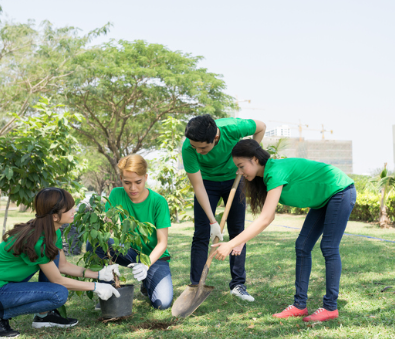Volunteerism is a powerful extension of higher education that enriches student growth while making meaningful contributions to communities. Colleges and universities increasingly encourage students to engage in service activities as part of their learning journey. Through volunteer work, students not only apply classroom knowledge to real-world issues but also develop empathy, leadership, and civic responsibility. Here’s how volunteerism supports social impact and personal development in higher learning.
1. Linking Education to Community Needs
Many institutions integrate service-learning into academic programs. These courses combine volunteer work with reflective assignments, allowing students to address local or global challenges while gaining insight into their field of study.
2. Building Leadership and Teamwork Skills
Volunteer projects often require planning, communication, and collaboration. These experiences help students strengthen leadership and interpersonal skills that are transferable to future careers.
3. Expanding Worldviews Through Direct Engagement
Working with diverse populations exposes students to new perspectives and realities. This firsthand experience fosters cultural awareness and a deeper understanding of social issues.
4. Encouraging Civic Responsibility
Volunteerism instills a sense of duty to contribute positively to society. Many universities promote civic engagement as a core value, encouraging students to become active participants in their communities.
5. Offering Hands-On Experience
Through volunteer work, students gain practical experience in areas such as education, healthcare, environmental sustainability, and public service. These opportunities can clarify career interests and enhance resumes.
6. Supporting Mental and Emotional Well-Being
Helping others has been shown to boost mood, reduce stress, and improve overall mental health. Volunteer activities provide a meaningful counterbalance to academic pressures.
7. Connecting Students With Local and Global Networks
Campus service organizations and nonprofit partnerships offer chances to network with professionals, community leaders, and fellow volunteers, often leading to internships, job opportunities, or lifelong collaborations.
8. Encouraging Long-Term Commitment to Social Good
Students who engage in volunteerism during college are more likely to continue community service after graduation. These habits support a lifelong commitment to equity, justice, and positive change.
9. Enhancing Institutional Reputation and Impact
Universities that prioritize social responsibility contribute to stronger, more resilient communities. These institutions are recognized for producing graduates who are not only knowledgeable but also socially conscious.
10. Creating a Culture of Empathy and Inclusion
Volunteerism nurtures compassion and reinforces the importance of inclusive values. By participating in diverse service projects, students contribute to a more supportive and understanding campus culture.
Conclusion
Volunteerism in higher learning goes beyond charitable acts—it is a pathway to personal growth, academic enrichment, and community transformation. By encouraging students to engage with the world around them, higher education fosters socially aware graduates who are prepared to make a lasting, positive impact.














